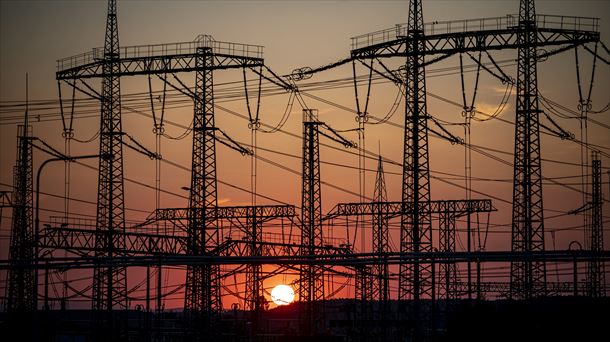The parties agree on “restoring constitutional order in the Tigray region” and a program for the disarmament and reintegration of TPLF fighters
African Union mediator Olusegun Obasanjo announced on Wednesday that the government of Ethiopia and the Popular Front for the Liberation of Tigray (TPLF) have signed an agreement to end hostilities in the context of the conflict that has devastated the region from Tigray (north) since November 2020.
Representatives of the Ethiopian government and the TPLF held a “high-level” meeting, under the auspices of the African Union, and signed the ceasefire agreement, according to the Addis Standard newspaper.
Later, the parties issued a joint statement committing to apply “transitional measures” for the restoration of constitutional order in the Tigray region, and to develop both a framework to resolve political disagreements and another framework to be accountable.
“To deliver on these commitments without delay, we have agreed to end all forms of conflict and hostile propaganda,” they said, urging Ethiopian citizens at home and abroad to support the agreement. . “Ethiopian Herald”.
In addition, the government has stated that it is ready to “protect Ethiopia’s sovereignty and territorial integrity” and has stated that the country has “only a national defense force”, adding that it will continue its efforts to restore public services.
“We have also agreed on a detailed disarmament, demobilization and reintegration program for TPLF fighters, taking into account the security situation on the ground,” the parties explained, adding that the conflict has resulted in loss of life and livelihoods. .
The Ethiopian government has said it will continue to work with humanitarian organizations “to continue to accelerate aid to all those in need”. “Students should go to school, farmers and shepherds to their fields, and officials to their offices,” they have said.
Finally, the parties pointed out that the agreement, which opens the way to “a new hopeful chapter in the history of the country, requires public support for its implementation, as it is in the interest of the entire people of Ethiopia”. to leave this chapter of the conflict behind and live in peace and harmony.”
“We thank the people of Ethiopia for encouraging these talks and for patiently waiting for the outcome. We trust that they will accept the results of these talks and ensure that they are implemented in a timely manner.”
Subsequently, the government of Abiy Ahmed issued a statement, posted on the profile of the president himself, thanking the parties for their commitment and stating that his executive’s commitment is “fixed”.
The talks were attended by former Kenyan President Uhuru Kenyatta and former South African Vice President Phumzile Mlambo-Ngcuka, as well as representatives of the Intergovernmental Authority for Development (IGAD), the United Nations and the United States.
The TPLF agreed to start a dialogue with the Ethiopian government in early October, an AU initiative to achieve a “peaceful solution to the current conflict”. One of the conditions of the TPLF was that during the negotiations there are “additional actors” as observers or guarantors.
The war has worsened in recent weeks after new fighting broke out in August, following a five-month humanitarian truce the sides agreed to. The TPLF had previously denounced a large-scale offensive by the Eritrean army in support of Ethiopian forces.
The conflict in Tigray erupted in November 2020 after an attack by the TPLF on the main army base, located in Mekelle, after which the government of Abiy Ahmed ordered an offensive against the group after months of political and administrative tension. A “humanitarian truce” is currently in place, although both sides have accused each other of blocking the relief effort.
The TPLF has accused Abiy of fueling tensions since he came to power in April 2018, when he was the first Oromo to take office. Until then, the TPLF had been the dominant force within the ethnically based coalition that has governed Ethiopia since 1991, the Ethiopian People’s Revolutionary Democratic Front (EPRDF). The group opposed Abiy’s reforms, seeing them as an attempt to undermine his influence.
Source: La Verdad
I am an experienced and passionate journalist with a strong track record in news website reporting. I specialize in technology coverage, breaking stories on the latest developments and trends from around the world. Working for Today Times Live has given me the opportunity to write thought-provoking pieces that have caught the attention of many readers.



